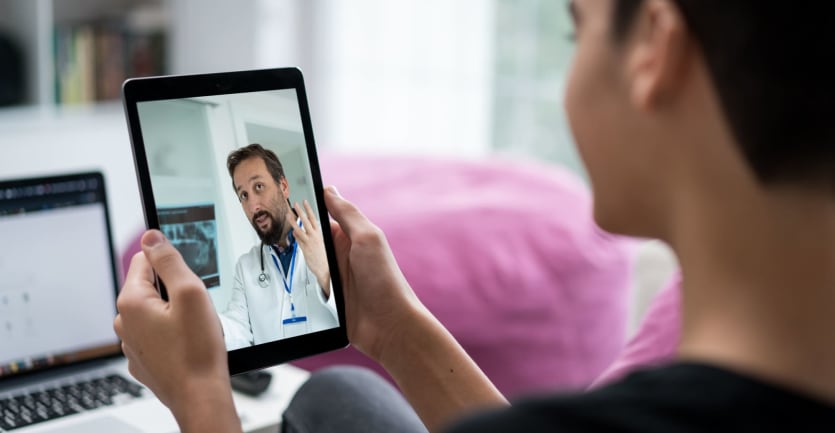The Impact of Coronavirus on Healthcare Education
- Coronavirus has caused major, potentially permanent shifts in healthcare education.
- Online courses and labs can help prepare students for the transition to telemedicine.
- Many medical students are joining the battle against COVID-19 by volunteering.
As the healthcare industry recovers from the COVID-19 pandemic, healthcare education is likely to change. Many programs have already made large-scale shifts by moving classes online, ending student-patient contact, and retooling public health curricula.
Until recently, health and medical programs, particularly accelerated programs, typically spent little class time on public health emergencies — but this, too, is changing.
COVID-19 will not be the last public health emergency that current and prospective healthcare students encounter in their careers, which is why changes like these are necessary. In addition to altering the learning experience for health and medical students, the coronavirus has provided a glimpse into how healthcare education as a whole may evolve in the coming years.

Online Health Education and the Rise of Telemedicine
With the coronavirus pandemic, healthcare workers are at elevated risk because of their high level of exposure. Front-line responders include not only nurses and doctors but also administrative staff and medical assistants.
For now, most healthcare students, including medical students, are being kept out of clinical settings. Like all learners, healthcare students are adjusting to education that is fully online. Because of the hands-on nature of their chosen professions, some students have voiced concern over missing out on labs and clinicals.
Most healthcare programs, including those offered online, require lab practicums, internships, and/or job shadowing to get practice in real-life situations. In lieu of these, some healthcare students are able to practice their skills in simulation labs.
Future healthcare careers will include telemedicine — remote patient contact — which students are now practicing online.
While healthcare education may face obstacles in going fully online, online medicine is already happening. With over 1.5 billion people worldwide told to stay home, technology use has spiked around education and work, as well as healthcare.
According to data from software analytics company Pendo, usage of telemedicine rose 63% in the third week of March. Long-distance interaction with patients is part of the new normal.
Until now, doctors’ offices and patients had been slow to accept health technology. But the current crash course introduced by the COVID-19 outbreak could speed integration.
Remote patient contact, electronic medical records, and webinars and teleconferences will likely become an essential part of future healthcare careers, meaning that healthcare students acquiring digital skills now will be equipped to use them as professionals.
Sheer demand could also lead to more flexible online training for healthcare workers. Some doctors suggest that the current pandemic could result in a healthcare worker shortage, requiring students to join the medical workforce through early graduation or new licensing procedures.
Healthcare Students Join the Fight Against COVID-19
Even as healthcare students remain homebound in most parts of the country, they are participating in efforts to combat the coronavirus — though not all are able to work alongside health professionals.
Due to the risk of infection, incomplete training, and the shortage of personal protective equipment, most hospitals and healthcare programs have suspended student-patient contact.
Medical students are volunteering at call centers, running mask drives, [and] creating patient education materials.
Healthcare education organizations, including the Association of American Medical Colleges, discourage involving students in direct patient care at this time unless there is a critical healthcare workforce need. Nevertheless, many healthcare students are finding ways to help.
Across the country, medical students are volunteering at call centers, running mask drives, creating patient education materials, and babysitting healthcare workers’ children during long shifts. Vocational nursing and medical assistant students are supporting emergency personnel at senior care facilities.
Meanwhile, both students and retirees are answering the calls of state leaders to assist in the medical crisis. Healthcare students interested in volunteering should check with their local Department of Health or medical task force.

Free Online Courses for Health and Medical Students
Besides volunteering to assist with the ongoing crisis, healthcare students may want to get a head start on or enhance their education by enrolling in an online health or medical class.
In response to the coronavirus outbreak, several colleges and universities are offering free online courses, many of which cover timely public health topics. Here are some classes both current and prospective medical students may be interested in taking.